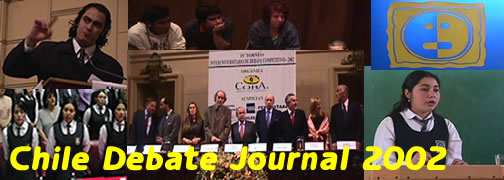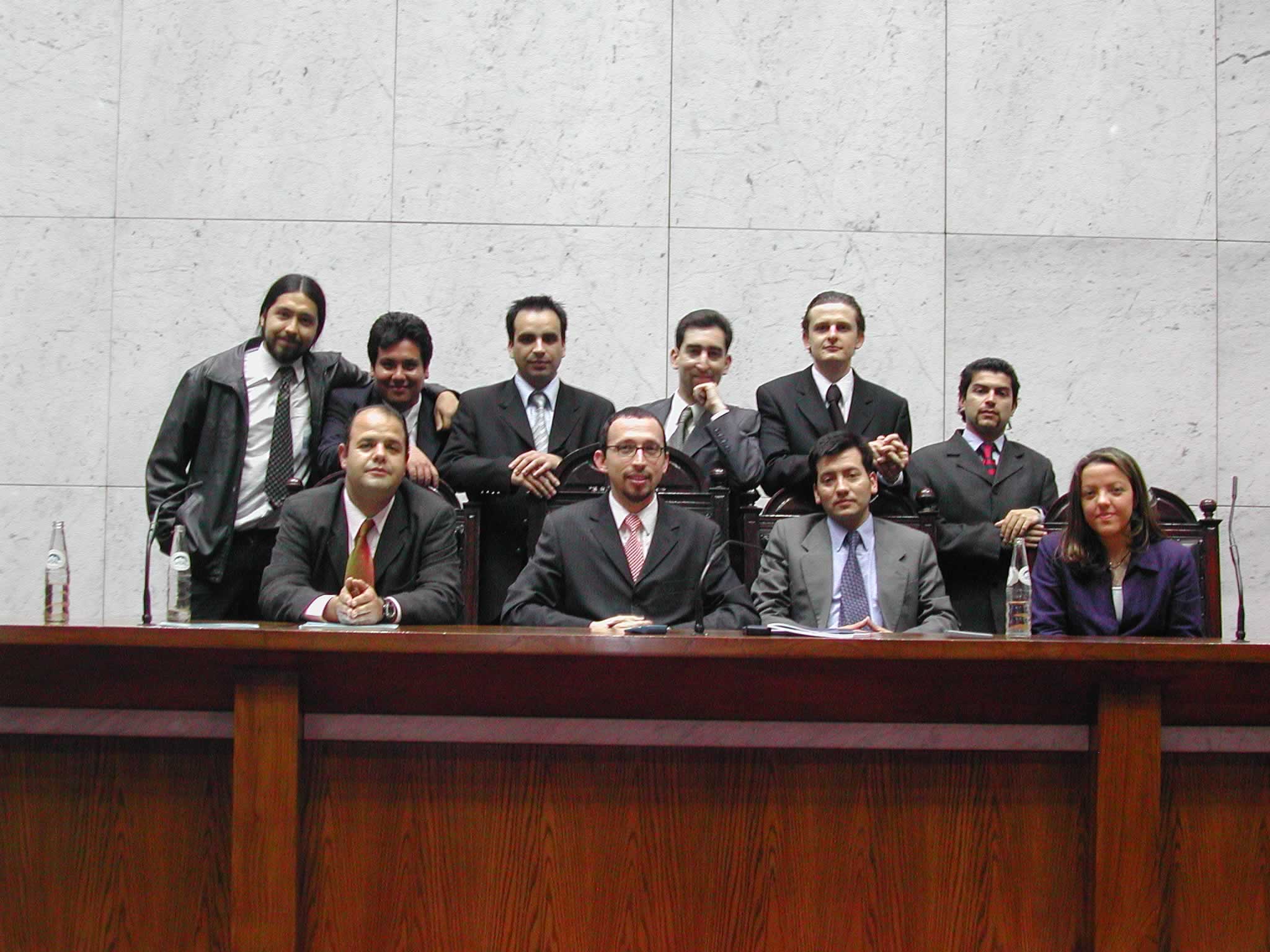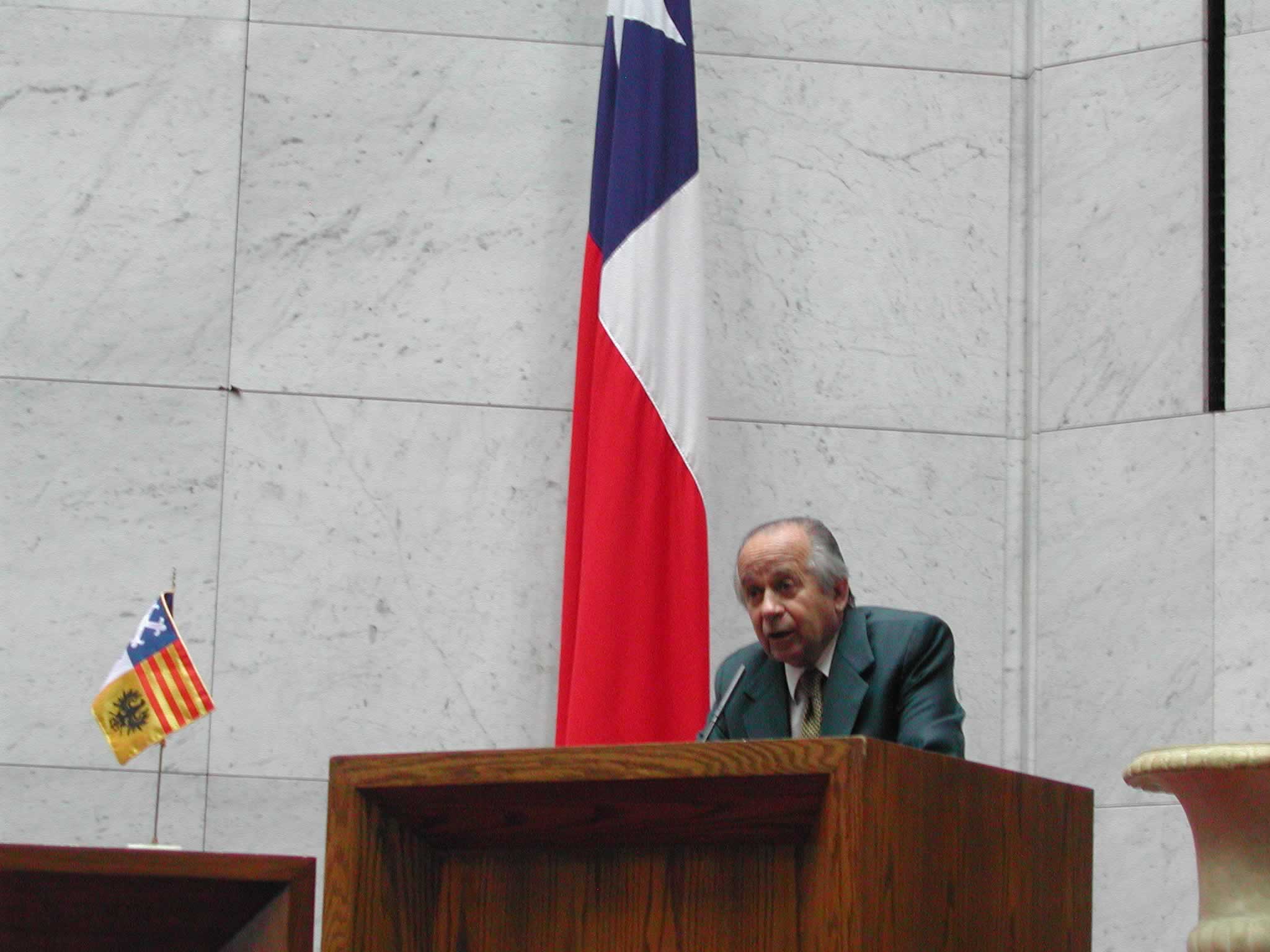

| Introduction | 11/22 | 11/23 | 11/24 | 11/25 | 11/26 | 11/27 | 11/28 | 11/29 | Alfred C. Snider | Debate Central |
We boarded our plane and I
made my way to the second to the last row where my seat was. All seats seemed
to be full. We took off after midnight and I had a pleasant conversation with
a fellow passenger who was bound for Chile to repair a giant mining machine
in the northern desert area at a copper mine. I have long wanted to visit this
region and I enjoyed hearing his impressions of it from his over twenty visits
there. A fine meal (by airline standards) was served and I managed to avoid
watching the several mediocre movies offered. It was hard to get comfortable
and I was very tired, having been up since 4:00 AM.
I slept little but spent most
of my time with my eyes closed listening to music on my iPod. I must have fallen
asleep at some point because I woke up with no music playing (battery finally
ran down) and things beginning to stir around me. I looked at the map display
and realized that I was, once again, south of the equator, into a full half
of the globe that I have visited so little. A small breakfast was served and
it was welcome. I stood up for the first time in seven hours and managed to
walk up and down the aisle in a partial attempt to stretch my legs.
The beautiful vista of the
Andes Mountains and the rugged Chilean countryside unfolded beneath me. Brown
rocky crags were punctuated by green and fertile valleys and snow-capped mountaintops.
We came closer to the ground and it was obviously a beautiful day in the Chilean
capitol. We came in for a very stable landing and taxied to our gate.
I disembarked and soon found
myself in a long line to pay my "reciprocity" fee, charged to Americans,
Canadians, Mexicans, and Australians. Apparently all countries that charge Chileans
considerable amounts to enter those nations are charged upon entry to Chile.
The charge to Americans is $100, up from $45 when I last came. It was explained
to me that the US embassy now charges $100 to apply for a visa to visit the
USA and will not refund the money if a visa is denied, so the price had been
raised. After standing in line for some twenty five minutes I determined that
since I had visited two years earlier I had already paid this one time fee.
Glad that I had saved the money and at least some time I headed straight for
passport control. After a short wait I went to baggage claim and was delighted
to find my bag had made it through our tight connection in Miami. I grabbed
a cart (free in Chilean airports) and made my way to customs. Having nothing
to declare I was waved through and proceeded out two large doors into the main
concourse, to be met by a crush of people and about fifteen taxi drivers anxious
to take me for a ride.
|
FRANCISCO MAS, "PACO" |
Francisco Mas had told me
that people from Diego Portales would be there to meet me, but I saw no one.
I realized how dependant I was on them, since I did not know where I was staying.
I had a few phone numbers and that was all. Fortunately I soon heard a voice
calling out my name, and for the first time I met Francisco Mas, whom I had
corresponded with extensively in preparation for this trip. We made our way
out to the parking area and loaded my bags in. We were off in his brightly colored
Kia and into the Chilean sunshine.
We soon found ourselves in
a traffic jam (called a "taco" in Chile) caused by construction of
a new road, and we passed the time by carrying on a fascinating conversation
about debate, argumentation, and teaching.
Francisco had first become
involved with debate through his work in teaching philosophy. He had for three
years taught a philosophy class that was organized by students themselves. The
students determined the topics, the format for instruction, and the standards
by which to judge materials presented by the students as well as Francisco.
He told me how this had introduced him to the need to create a tolerance for
differing opinions and the need to develop critical thinking in students. These
experiences had brought him into contact with Sociedad de Debate at Diego Portales
and when Rodrigo left Chile for study in the USA he had asked Francisco to join
the group and work with Benito. We shared pedagogical ideas and resources and
before I knew it we were out of the traffic and into Santiago, just as beautiful
as I remembered it. I was pleased to find out that I would be staying once again
at my previous hotel, Hotel Conde Ansurez, very close to Diego Portales and
right on the main subway line. It was good to know I would be in a neighborhood
that I am familiar with and found so interesting during my last stay. This part
of town had contained the homes of the rich during the beginning of the 20th
century, and now these same lovely buildings held schools, offices, organizational
headquarters, and Universidad Diego Portales.
During our drive Benito Escobar
had phoned and we had a short conversation. He informed me that he would call
me later in the day after I had rested and we would get together. I checked
into the hotel at about noon and was given a choice between a room with an exterior
view or an interior view. I obviously choose a room with an exterior view and
found that I had an excellent vista of the tree lined avenue, the Santiago skyline,
and the mountains in the distance. I said goodbye to Francisco, took a bath,
and then settled in for a siesta, something I was grateful for given the cramped
and uncomfortable short sleep I had received that night. I was pleased to see
that BBC World was on my television cable system, so I knew I would not have
to go through BBC withdrawal, as I have become very dependent on BBC News coverage
since I cancelled my cable television at home almost two years ago. By the way,
since I stopped watching CNN and Fox News I believe I have become much better
informed. The breeze came through the open window and I could hear birds singing
outside as I fell into a delightful nap.
I awoke almost refreshed and
caught up on some news while I waited for BenitoÕs call. It came, and he informed
me that he would come by the hotel at a little after 5:00 PM and we would go
out for a drink and a snack and discuss the details of the trip. While I waited
I worked a bit on my trip journal.
|
BENITO ESCOBAR, DIRECTOR, SOCIEDAD DE DEBATE |
Benito arrived and we set
out for another part of town. We took the nearby subway and zipped away. The
Santiago subway is shining, clean, quiet, and swift. I marveled at the difference
between the Santiago subway and the noisy, creaky, and undependable subway in
New York City. Each subway stop is decorated by Chilean artwork. After a few
stops we got off and walked up to the street. We walked along until we found
a traditional Chilean sidewalk cafˇ where we took a table.
As we ordered Benito began
to share with me all the progress they have made in the last fifteen months
since we had worked together in Vermont and in the six months since we had talked
in Puerto Rico. Sociedad de Debate had received a grant of approximately $30,000
from the Chilean government to create a pilot program for starting debate training
and competitions in schools identified as having a large proportion of students
categorized as "at social risk" through economic or family conditions.
He told glowing stories about how many youths who had been focused on disrupting
schools and had shown tendency for violence had been attracted to the debate
program over other options, such as journalism or drama, because they got to
speak out on issues they cared about in a setting where teachers, administrators,
and other students would listen to them. The program had also reached out effectively
to groups that had been previously silenced, such as women students and the
Mapuches, the indigenous people of Chile. We spoke also about the plans for
a grant from the Ford Foundation. Benito had asked Ford for $100,000 to expand
the current outreach program, and was very hopeful. I had supplied documentation
and letters of support for their application. Benito reported that the next
evening the finals would be televised on tape from the original Chilean senate
chambers in Valparaiso. He talked about the grandeur of the setting and how
thrilled his rector, Manuel Montt, had been with the event as well as the excellent
publicity the program would receive. The program had expanded rapidly in Santiago,
but now other cities were clamoring to join and expansion needed additional
funding. We also talked about the recent American election, something that Benito
found confusing and frustrating. I was not able to enlighten him very much,
as I was also confused and frustrated by the seeming Republican victory. He
asked about things in Vermont and news about people he had met, and I asked
about how events in Chile had been unfolding as well as about specific Chilean
debaters I had met and admired. We
had a very interesting discussion about Chilean and American cultural differences.
Before we knew it the time had reached midnight, and we set off for the hotel.


| Organizers of the national school tournament | President of Senate speaks
to national school tournament |
I said goodbye and finished
my first day in Chile realizing that I was still somewhat tired and the real
portion of my visit was before me.